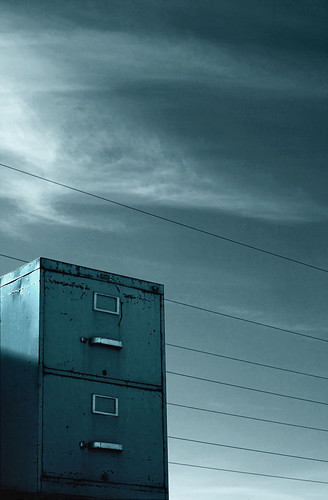
A month ago or so, I set out to get some definitive answers about copyright law as it would apply to wedding videographers; people who record weddings and provide an edited DVD product to the bride and groom. I have friends and acquaintances in this business, and have found wildly divergent perspectives on copyright, and what defines legal usage of copyrighted material within the confines of wedding video productions.
Using an informal polling method of calling my friends and asking them questions, I heard a few common themes, but everyone differed on the details. On a couple of occasions, I've contacted the (very, very helpful) Beverly Hills Bar Association, publishers of The Musicians Business and Legal Guide and run the various theories past them. I've tried to distill the questions to rather broad categories. As with most things legal, the devil's in the details. IANAL, and this post is not meant to constitute legal advice. If you've still got questions, call the Beverly Hills Bar yourself (they have 1/2 hr free consults) to discuss your particular details.
Q: As a wedding video producer, do I have any exposure to potential copyright claims?
A: It depends on your business model.
Generally speaking, weddings are private events; they are not open to the public. Because they're private, infringement claims are generally dismissed. When a person purchases a compact disc recording, they're (usually) granted a license that reads: "Licensed for private, non commercial use." or a similar language. That's the license that allows someone to use a Tim McGraw song during their wedding.
If your business model involves simply recording the event, editing, and delivering a shiny disc product to the bride and groom, a videographer is covered the bride and groom's license. That is to say, you are specifically licensed to use that material in any your clients see fit, providing it remains private and non-commercial.
Q: I was paid to produce the video - doesn't that make it "commercial?"
A: No. Your recording and subsequent editing of the private event does not constitute a "derivative work", nor is your being paid in any way related to the copyrighted material. That you have been hired by the licensee simply means you're "for hire" and generally indemnified against a copyright claim. This legal structure varies between states, so make sure to TALK TO YOUR ATTORNEY TO MAKE SURE THIS APPLIES TO YOUR BUSINESS.
Q: Doesn't "Fair Use" cover me in these situations?
A: No - "Fair Use" does not apply. Fair Use is a special class of exemptions from infringement claims. As you're already licensed to use the music via the purchase of the CD or "for hire" status, "Fair Use" is not required.
Q: Under what circumstances would I have to obtain licensing?
A: Imagine you're product includes a short piece highlighting the bride and groom's first meeting - a kind of retrospective. You decide to include television clips ("When Dick and Jane first met 6 years ago, THIS is what was on TV...") or other copyrighted material IN ADDITION to what was recorded during the private ceremony, they you'll certainly need a license, as you're essentially reselling those clips.
Another scenario would be if you intended the wedding video to be released publicly - resold in stores (who'd buy it!?!?) or broadcast on a public network. In those cases, a videographer would absolutely have to obtain coverage (most likely via an agency like Harry Fox).
One probable scenario is having a portion of your wedding video featured on television, ala America's Funniest Home Videos (or Bridezilla and it's ilk). In a case like that, the broadcast company (ABC) would usually go about obtaining the license (if they don't already have blanket coverage). Even in that scenario, however, the burden of license does not fall on the videographer.
I hope you've found this post helpful and informative. Questions/corrections can be submitted in the comments.
Photo by Daquella Manera.
